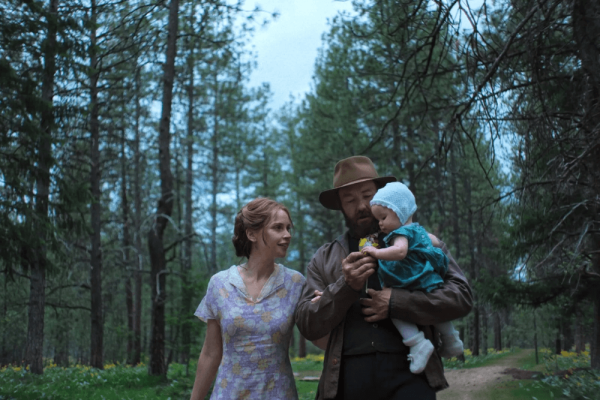When I talk to clergy in my circles, morale is low. It seems like each day brings another new low in the American experiment. One pastor I spoke with said, “I can go to protests, but what is the point? The people in power don’t care, and it doesn’t change anything.”
That got me thinking: What is the point of protest? For me, at least, participating in protests is about living in alignment with my values and bringing the considerable privilege that religious leaders have to bear on unjust situations.
On June 21, during a 95-degree day in Jena, La., I spent the day with an interfaith delegation protesting outside the La Salle Detention Facility where activist Mahmoud Khalil was being held. We had arrived to demand Khalil’s release and the release of the more than1,000 other detainees being held in the for-profit facility under inhumane conditions.
On March 8, Khalil was detained by Immigration and Customs Enforcement agents in the lobby of his apartment on the campus of Columbia University. The administration justified its detainment of Khalil, a legal permanent resident, by invoking the 1952 Immigration and Nationality Act, which allows the government to deport immigrants deemed “adversarial to the foreign policy and national security interests” of the United States. The government classified Khalil’s nonviolent advocacy for Palestinian human rights and an end to the war in Gaza as contrary to U.S. interests.
On June 20, Michael E. Farbiarz of Federal District Court in Newark, N.J., released Khalil on bail. The judge granted Khalil’s release after Khalil’s lawyers argued that there was reason to believe President Donald Trump and his administration targeted Khalil due to his involvement in the Palestinian human rights protests that happened on Columbia University campus last spring.
And while Khalil’s release — after 104 days in detention — is a reason to celebrate, it did not diminish the importance of clergy showing up in protest. In fact, it made me all the more convinced that when people of faith use their religion to fight injustice, God shows up in unexpected ways.
***
If protesting doesn’t matter — if dissent and the exercise of free speech ultimately amount to nothing — then why did the Trump administration work so hard to punish Khalil for his activism? As Khalil told NPR’s Leila Fadel on June 23, “They want the protests to stop because it exposes this administration’s and government[’s] hypocrisy when it comes to human rights. In my case, they weaponized the immigration system to achieve what they want to, which is to chill speech.”
The U.S. government has tried to chill the free speech of Khalil and others by labeling criticism of Israel’s killing of more than 62,000 Palestinians since Oct. 7, 2023 as antisemitic. But as Khalil pointed out during his comments to The New York Times after his release, there is nothing antisemitic about criticizing Israel’s genocidal actions: “I was literally advocating for the right of my people. I was literally advocating for an end of a genocide. I was advocating that the tuition fees that I and other students pay don’t go toward investing in weapons manufacturers. What’s antisemitic about this?”
New definitions of antisemitism pushed by the International Holocaust Remembrance Alliance conflate any criticism of the state of Israel with antisemitism in ways that serve only to chill speech and make clergy afraid to speak out. Antisemitism is wrong; full stop. But criticizing Israel, like any government, is not.
When we conflate antisemitism with criticism of the state of Israel, we risk losing sight of real cases of antisemitism, which occur far too often in the United States. Some of those acts of antisemitism are perpetuated by those claiming to be pro-Palestinian actors. But whether the people committing these acts identify as “pro-Palestinian” or not, antisemitic acts should be universally condemned. People of faith engaged in pro-Palestinian organizing should be the first to speak out.
READ MORE: Has Zionism Become an Idol?
People of faith have long engaged in protest throughout this nation’s history. Clergy marching with Rev. Martin Luther King Jr. played a prominent role in advancing civil rights during the 1960s. Since then, American religion has been in decline, as people have been moving away from organized religion, especially Christianity. But still, people of faith have an important role to play in the ongoing fight for justice.
While protesting outside the detention facility in Jena, I spoke with organizer and layperson Frank Panopoulos, who said that protest matters because it is “incarnational — it embodies one’s faith, just like the works of mercy. Without that embodiment, our faith is just empty piety and ritual. Jesus stood up to the ruling authorities and the Roman Empire. Following him means standing up to today’s U.S. Empire.”
Standing up to the U.S. Empire today will require that clergy and other people of faith reject despair and commit to action.
Standing up to the U.S. Empire today will require that clergy and other people of faith reject despair and commit to action.
I am under no illusion that our protest caused the release of Khalil. Neither God nor the court systems work that way. But I am convinced that the long arc of the moral universe is bending toward justice. I’m also keeping in mind a quote that German liberation theologian Dorothee Söelle attributes to Martin Buber, a mid-20th-century philosopher: “Success is not one of God’s names.” Our work will often not yield the results we seek.
But even still, God has a way of meeting us at protests. When we had gathered to begin our vigil, a young woman wearing a skirt approached us and asked if anyone had a pair of pants that she could wear. Without them, she could not see her family member who was detained in the for profit prison. It turned out that someone in our party had spare pants to share; the young woman was able to see her family member. For one brief moment, we had prevailed over the system of bureaucracy designed to isolate people detained in these facilities.
This encounter left us feeling that our presence at the facility was a divine appointment. When I think about why I protest, it’s not just a matter of wanting to stand up against the powers and principalities, but of wanting to be faithful in doing the small things that help put the world back together again.
Got something to say about what you're reading? We value your feedback!





